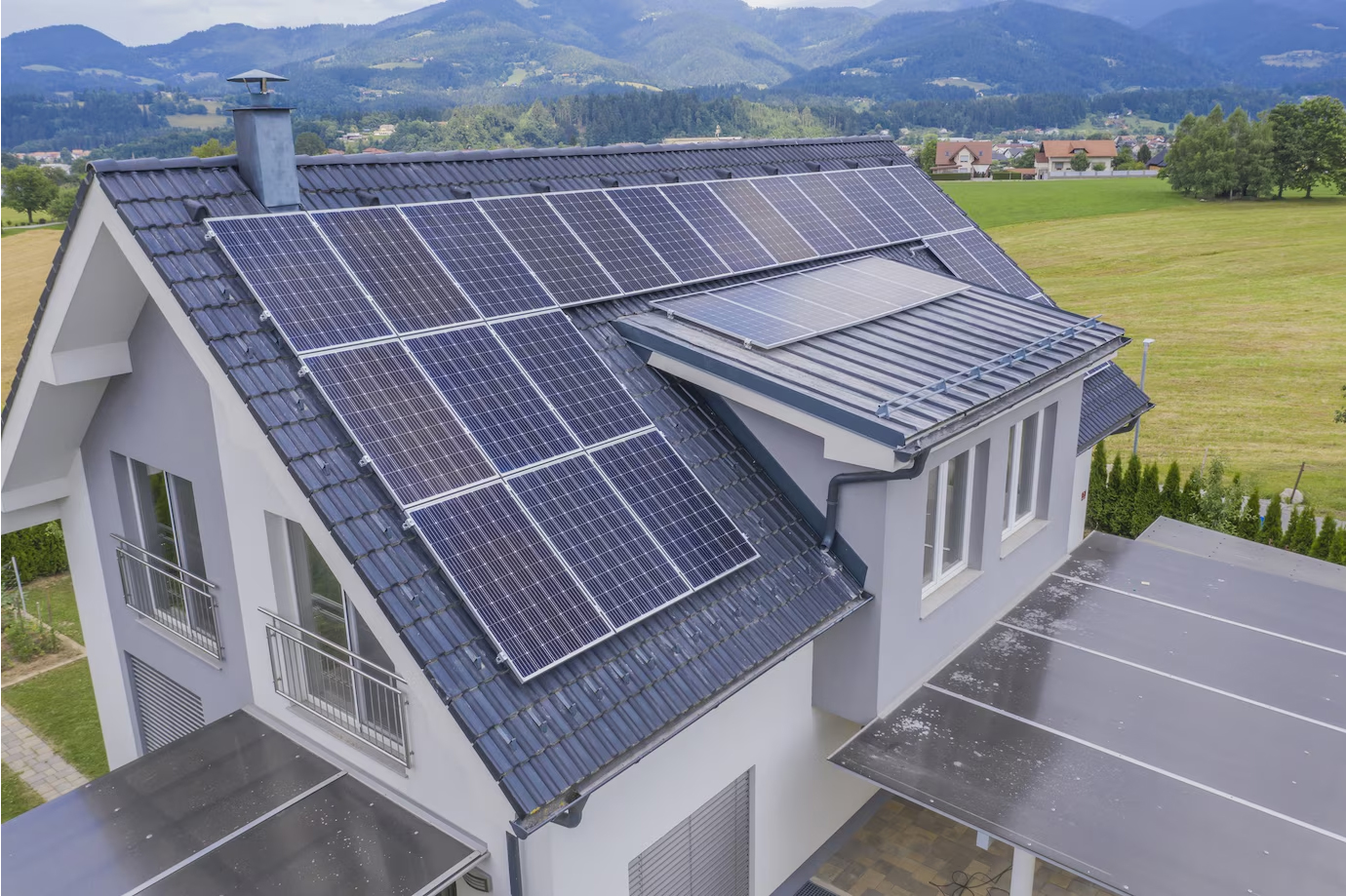
PO BOX 589
Endeavour Hills VIC 3802

Email Us

As people in Melbourne face higher energy bills, switching to solar power as a renewable energy source is a smart idea. Melbourne receives plenty of sunshine throughout the year, making it an excellent place for homeowners to generate their own electricity. This guide will help you understand what you need to know to choose the right solar panels for your home. With this information, you can make a well-informed and affordable choice.
Using solar power in Melbourne isn’t just a trend—it’s a practical choice for both your wallet and the environment. The rising cost of traditional electricity and the harmful effects of fossil fuels make switching to renewable energy, like solar, a logical decision.
Melbourne enjoys abundant sunshine, which is ideal for harnessing solar power. High-quality, efficient solar panels can significantly reduce your reliance on grid power. This means lower electricity bills and a smaller carbon footprint.
Solar panels generate clean energy, reducing harmful emissions and helping to build a sustainable future for Melbourne.
Switching to solar is also a wise financial decision. With energy bills on the rise, solar power offers a way to stabilize costs. By generating your own electricity, you become less dependent on the grid, making your energy expenses more predictable over time.
Additionally, solar energy provides energy independence. During power outages, a robust solar panel system—especially one equipped with battery storage—can act as a backup power source, ensuring that your home remains operational.
Although Melbourne enjoys abundant sunny days, understanding the local climate is crucial when choosing solar panels. The temperature coefficient measures how well a panel performs under varying temperatures. A lower temperature coefficient indicates better performance during Melbourne’s hot summers.
In addition to temperature, factors like your roof’s orientation and the amount of daily sunlight it receives will affect your solar panel choice. It’s important to consider any shading caused by nearby trees or buildings to maximize energy production.
With climate change being a significant concern, choosing durable and efficient solar panels is essential. Opt for panels with strong warranties and proven performance across diverse weather conditions to ensure a reliable and long-lasting solar energy system for your home in Melbourne.

Before exploring solar panel options, take time to evaluate your home’s specific features and energy needs. This preparation will help ensure a smooth installation process.
Start by analyzing your energy usage. Review your electricity bills to determine your average consumption. Additionally, assess whether your roof is suitable for solar panels.
Understanding local regulations, permits, and grid connection requirements is equally important. Being informed about these aspects will streamline the installation process and prevent delays.
The first step in adopting solar energy is determining the size of the solar system you need. Start by analyzing your household’s energy usage. Check your electricity bills for your average daily or monthly usage in kilowatt-hours (kWh). This data will help you calculate the required system size (kW).
Next, consider your roof space. The size and orientation of your roof affect the number of solar panels you can install. A professional solar installer can evaluate your roof’s dimensions, direction, and slope to identify the optimal locations for panel placement.
Keep in mind that obstructions such as chimneys, vents, or nearby trees can reduce energy production. By thoroughly evaluating your roof space, you can design a system that maximizes energy output while efficiently utilizing the available space.
Step 1: Assess Your Energy Needs
Before exploring solar panels, analyze your home’s energy usage to determine the appropriate system size (measured in kilowatts or kW).
Here’s a simple guide:
Small apartment (1-2 people): A 3kW system may suffice.
Typical home (3-4 people): A 5kW-6kW system is often ideal.
Larger homes (5+ people) or high energy users: Consider a 10kW system or larger.
These are general recommendations.
Step 2: Research Solar Panel Types and Brands
There are various types of solar panels, including monocrystalline, polycrystalline, and thin-film panels. Each has distinct advantages and disadvantages. Choose panels based on your budget, energy needs, and aesthetics. Prioritize trusted brands with robust warranties and performance guarantees.
Step 3: Understand Efficiency and Capacity
Solar panel efficiency impacts the size of your system and long-term savings. Higher-efficiency panels generate more electricity from the same amount of sunlight, requiring fewer panels and less roof space.
For example:
| Panel Efficiency | Approx. Number of Panels for a 6kW System |
| 16% | 26 |
| 18% | 22 |
| 20% | 19 |
While higher-efficiency panels may have a higher upfront cost, they often provide better long-term value.
Step 4: Compare Warranties and Lifespans
A solar panel system is a significant investment, so it’s vital to evaluate warranties.
Product Warranty: Covers manufacturing defects.
Performance Warranty: Guarantees energy production over time.
Longer warranties often indicate better reliability. Understand the coverage, duration, and claims process, as well as any exclusions or limitations.
Step 5: Consider Inverters and Additional Equipment
The inverter converts DC electricity from the panels into AC electricity for your home. Choosing the right inverter—whether a string inverter or microinverters—is crucial for system performance.
String inverters: Cost-effective and suitable for most setups.
Microinverters: Provide panel-level monitoring and work well in shaded areas.
Consider adding battery storage to store excess energy for nighttime or outages. While batteries increase upfront costs, they enhance energy independence and long-term savings.
Switching to solar energy in Melbourne is a smart choice with environmental and financial benefits. By understanding your energy needs, researching panel options, and leveraging government incentives, you can make a seamless transition to solar power.
For expert assistance, choose GreenGen Solar, Melbourne’s leading solar company. Start saving money and promoting sustainability today by selecting the right solar panels for your home. Contact GreenGen Solar to begin your solar journey.